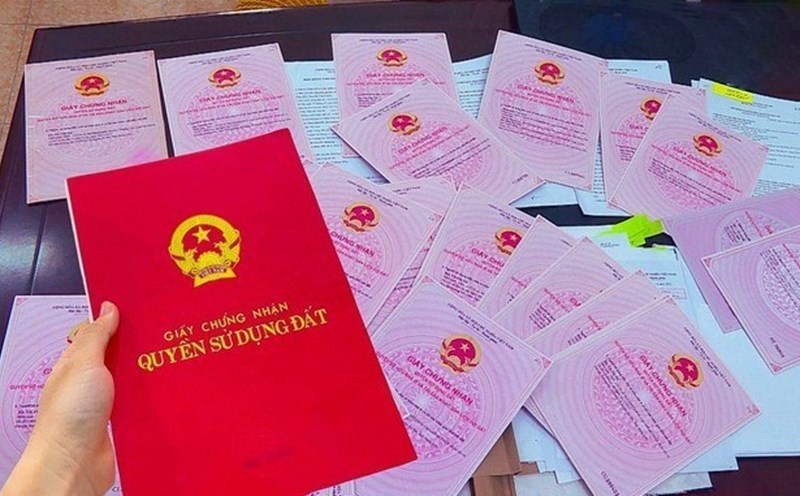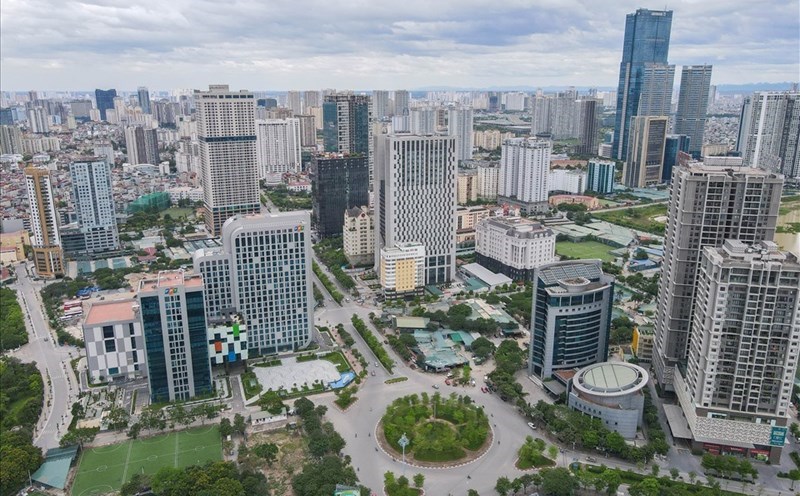The Ministry of Agriculture and Environment has just released a report assessing 1 year of implementing the 2024 Land Law.
The Ministry believes that the 2024 Land Law has specifically regulated the auction of land use rights and bidding to select investors to implement projects using land.
Accordingly, the regulation for land areas managed by the state, the general principle is to auction land use rights. Investment projects to build urban areas and rural residential areas will be bid and projects that are required by law to be bid.
However, the order of auction procedures and bidding procedures must comply with the law on property auctions and the law on bidding with complex procedures and extended time, reducing flexibility and affecting the ability to attract investment.
According to the provisions of the law on property auctions and land laws, participants must pay a deposit equal to 20% of the total value of the land plot or land plot calculated according to the starting price for auctioning land use rights.
Article 39 of the Law on Property Auction 2016 (amended and supplemented in Clause 24, Article 1 of Law No. 37/2024/QH15) states that "In case of auctioning land use rights in cases of land allocation or land lease to implement investment projects, the minimum deposit is 10% and the maximum is 20% of the starting price".
According to the provisions of Point c, Clause 1, Article 55 of Decree No. 102/2024/ND-CP, the organization participating in the land use rights auction: "Must pay a deposit equal to 20% of the total value of the land plot or land area calculated according to the starting price for the land use rights auction".
In addition, the time to pay land use fees after winning the auction is still long. The current 20% deposit is still relatively low, especially in the context of applying an unadjusted land price list as a starting price.
The above regulations have been taken advantage of by a number of organizations and individuals for profit and negativity. Typical examples include acts of creating virtual prices, "inflating prices", pushing up land prices, causing a huge gap between starting prices and winning auction prices to transfer real estate in neighboring areas that have been collected before or increasing the value of mortgaged real estate to repay debts; or abandoning deposits after winning the auction, even colluding, submerging land prices in the auction to create bad public opinion, affecting the healthy development of the real estate market.
Meanwhile, the law has not fully regulated the sanctions for strict handling of deposit cancellation, as well as not yet regulated the minimum time for land detention before being allowed to be transferred after winning the auction of land use rights.
The push of up land prices through auctions has caused fluctuations in land prices in neighboring areas, affecting the attraction of new investment projects, making it difficult to reclaim land, compensate, support and resettle.
The allocation and lease of land is mainly in the form of annual lease without letting investors decide on the form of land lease, which is not flexible in land access.
In reality, many investors want to rent land with one-time land rental fees to be proactive in business accounting, participate in the real estate market, and facilitate capital mobilization and mortgage land use rights in business activities.
Especially for projects in the fields of healthcare, education, culture, society, etc., it is necessary to attract diverse investment resources.
Land lease with annual land rent payment leads to a situation where a large budget is spent on land acquisition, compensation, support, and resettlement but only collects annual land rent, prolonging the time to recover expenses.
Thus, it is necessary to have flexibility in allowing investors to choose the form of land lease.











